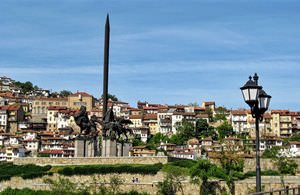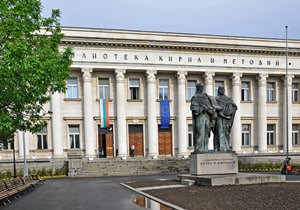
Bulgaria is a constitutional republic that has parliamentary administration. The country maintains a unified territorial integrity and pursues any attempts to form autonomous territorial units. The territorial integrity of Bulgaria is an inviolable structure. The administrative division of the country implies the presence of about 30 areas, which in turn, are formed from communities. At the same time, the very capital of Bulgaria, Sofia, is structurally a valuable region and has local self-government. The head of state is the President. He represents Bulgaria in the international arena, and participates in various international negotiations. The President is elected by open and direct vote. His term of office is 5 years. At the same time, according to the Constitution of the country, the President does not have the right to hold office more than two times.
Bulgaria is an ancient country on the territory of which in different epochs, reigned different empires. In Antiquity Bulgaria was part of the Roman …
Read further
Voting is conducted using the direct method. All citizens of the country who have reached the age of eighteen can participate in the voting. That said, the results of voting are legitimate and reflect the real will of the people only if more than half of the population of the country with the right to vote has participated in the elections. In turn, any citizen of the country who has reached the age of 40, was born in the country, and meets all the criteria approved in the constitution, can run for presidency. At the same time, the last few years before the election, the candidate must reside on the territory of his state. The head of the country cannot hold parallel offices in addition to his role as President. He cannot for example be a deputy or engage in any other activity, including public or economic. He also cannot be the leader of any functioning political party while in office.
The President is the commander-in-chief of the Armed Forces of the country and is responsible for national unity. His main responsibilities are the appointment or dismissal of the military commanders. He has the right to declare war or truce, and also is the head of the organization on national security. In addition, the President must fix the date of elections and subsequently communicate it to the Bulgarian parliament and the specific local self-government bodies. If the Deputies of the People’s Assembly decided on the need to hold a referendum, it is the President who will choose the date of the event. The main body of legislative power is the Parliament. It has a unicameral structure. In Bulgaria it is called the National Assembly. To date, it includes about 250 members. Each deputy receives this post for a period of 5 years. Elections are held according to a standard proportional system. The classical principles of equal and direct confidential voting are necessarily taken into account during elections. Copyright www.orangesmile.com
Bulgaria has a magnificent climate. The country is located on the Black Sea coast and is a popular place for a beach holiday. However, beaches are not …
Read further
The functional activity of the local parliament includes the election of the Chairman, as well as temporary and permanent commissioners. Please note that only those parties or coalitions that have overcome the 4% threshold during the voting can get the rights for the distribution of the mandate. The main structure of executive power is the government. In Bulgaria it is called the Council of Ministers. Traditionally, it is headed by the Prime Minister, who is appointed by the President. The Council of Ministers is formed by members of Parliament. In this case, all candidates are presented by the Prime Minister himself. The responsibility of the main body of executive power is not only to ensure the security of Bulgaria, but also to oversee all aspects of domestic and foreign policy of the country. In addition, the Council of Ministers constantly monitors the implementation of the established state budget. The Council of Ministers reports to the people’s assembly.
![National Library National Library]()
The Judiciary in the country is an independent branch of the country and is represented by the judges, investigators, prosecutors, and other staff of this field of activity. The main direction of the judiciary is to ensure and protect civil rights and interests. The highest court in Bulgaria is the Supreme Court. Working alongside it are the appellate and military courts, as well as district and circuit courts. The highest judicial council consists of 25 judges. Three judges from the total number have a permanent position; they are the country’s chief prosecutor, as well as two supreme judges. The people’s assembly and the judicial authorities provide 11 members each. Control over the implementation of the Constitution of the country is carried out by the relevant constitutional court. It consists of a total of 12 members.
 Bulgaria is a constitutional republic that has parliamentary administration. The country maintains a unified territorial integrity and pursues any attempts to form autonomous territorial units. The territorial integrity of Bulgaria is an inviolable structure. The administrative division of the country implies the presence of about 30 areas, which in turn, are formed from communities. At the same time, the very capital of Bulgaria, Sofia, is structurally a valuable region and has local self-government. The head of state is the President. He represents Bulgaria in the international arena, and participates in various international negotiations. The President is elected by open and direct vote. His term of office is 5 years. At the same time, according to the Constitution of the country, the President does not have the right to hold office more than two times.
Bulgaria is a constitutional republic that has parliamentary administration. The country maintains a unified territorial integrity and pursues any attempts to form autonomous territorial units. The territorial integrity of Bulgaria is an inviolable structure. The administrative division of the country implies the presence of about 30 areas, which in turn, are formed from communities. At the same time, the very capital of Bulgaria, Sofia, is structurally a valuable region and has local self-government. The head of state is the President. He represents Bulgaria in the international arena, and participates in various international negotiations. The President is elected by open and direct vote. His term of office is 5 years. At the same time, according to the Constitution of the country, the President does not have the right to hold office more than two times.
 The Judiciary in the country is an independent branch of the country and is represented by the judges, investigators, prosecutors, and other staff of this field of activity. The main direction of the judiciary is to ensure and protect civil rights and interests. The highest court in Bulgaria is the Supreme Court. Working alongside it are the appellate and military courts, as well as district and circuit courts. The highest judicial council consists of 25 judges. Three judges from the total number have a permanent position; they are the country’s chief prosecutor, as well as two supreme judges. The people’s assembly and the judicial authorities provide 11 members each. Control over the implementation of the Constitution of the country is carried out by the relevant constitutional court. It consists of a total of 12 members.
The Judiciary in the country is an independent branch of the country and is represented by the judges, investigators, prosecutors, and other staff of this field of activity. The main direction of the judiciary is to ensure and protect civil rights and interests. The highest court in Bulgaria is the Supreme Court. Working alongside it are the appellate and military courts, as well as district and circuit courts. The highest judicial council consists of 25 judges. Three judges from the total number have a permanent position; they are the country’s chief prosecutor, as well as two supreme judges. The people’s assembly and the judicial authorities provide 11 members each. Control over the implementation of the Constitution of the country is carried out by the relevant constitutional court. It consists of a total of 12 members. 

